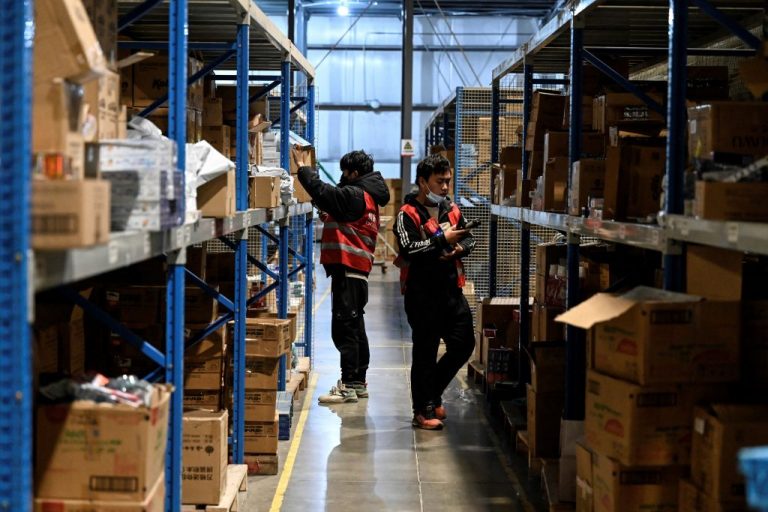A record 9.09 million college graduates are set to enter China’s workforce this year. With new jobs already on the decline since COVID-19 shuttered thousands of businesses across the nation, an estimated 15 million urban workers are now seeking employment, furthering the strain on the world’s second largest economy.
China’s economy remains riddled with challenges following the pandemic as there are still “quite a few uncertainties and instabilities,” Zhang Jinan, China’s minister of human resources said in a press release in February of this year.
The country’s largely industry-dependent job market is also facing structural obstacles, with both applicants and companies experiencing difficulty finding workers with skilled labor expertise in niche industries. The pandemic’s impact on other countries is also adding uncertainties and risks to China’s economic outlook as foreign companies are pulling out, severely impacting an already over-saturated job market, Zhang said.
“Finding jobs is difficult … and it is also difficult [for employers] to recruit workers in the manufacturing and service industries, as there is a particular shortage of skilled workers,” the minister said.
As competition for work intensifies, millions of overqualified Chinese workers find themselves in a tough spot as available jobs seeking immediate employment such as delivery couriers offer very little incentive and pay.
Delivery economy
Success
You are now signed up for our newsletter
Success
Check your email to complete sign up
“The couriers have created huge wealth for other businesses, but their own interests are being damaged in the long run without basic benefits,” Zhao Xiaomin, an investor and independent researcher in China’s logistic sector, told the South China Morning Post. “The lack of benefits also explains why people usually take this as a temporary job,” adding that most couriers are employed as independent contractors.
In July, Chinese shopping platform Meituan reported that more than 60,000 fresh graduates with master’s degrees and 170,000 undergraduates had taken up jobs as delivery riders — far below their educational qualifications. Of Meituan’s 2.95 million delivery riders, a quarter had at least college-level education, compared with less than 20 percent in 2020.
It was also reported that there was an increase in cases where delivery drivers had not been paid during the pandemic. The China Labour Bulletin, a Hong Kong-based NGO that aims to protect and promote workers’ rights, recorded 25 protests by drivers who did not receive compensation for completed work.
Huang Lihui, who works for Yunda Express in Shanghai, said he never expected the company to provide benefits such as health insurance, and stated he was not even sure about the legal status of his employment.
“I don’t care,” the 31-year-old from Hebei Province told SCMP. “It’s a job to earn money … My family is not here, and I don’t plan to bring them here either, so I don’t think of social benefits much.”
Singles’ Day
As China prepares for Singles’ Day, its largest online shopping festival, workers have flocked to sign up for package delivery jobs. The Nov. 11 single-day bonanza, also known as Double 11 , typically sees billions of dollars worth of online sales.
Growth in live-streaming shopping now contributes to 80 percent of revenue for the owner of UU Pearl store, a jewelry shop operating on online shopping platform Taobao. On the day of the Double 11 festival in 2019, He Hai said his store generated 100,000 yuan (US$14,289) in sales, where he would showcase fresh pearls to customers watching the livestream and they’d call in to place orders in real time.
Like so many others, Zhao Yinzhou, from Hebei’s Xingtai city, has looked to capitalize on the surging demand for delivery drivers to make ends meet.
Zhao has a bachelor’s degree in human resources and received a recruitment and training job at the headquarters of a large logistics company in Hangzhou, eastern China. But due to a family emergency, was forced to quit his job in the beginning of 2020. He had traveled to Beijing to find new work opportunities when the pandemic hit.
“Looking back, I deeply regret resigning, but it’s too late,” said the 29-year-old, who now works as a driver for Ele.me, the country’s second-largest on-demand delivery platform.
Fierce competition for government jobs
The pandemic coupled with China’s growing number of workers seeking employment has highlighted the nation’s social and economic strain. According to mainland reports, the number of applicants for the civil service exam (CSE) has been increasing. This year, the number of applicants for CSE exceeded a record high of 2 million people.
Experts believe the main reason why so many workers set their sights on passing the CSE is due to the high social status, various benefits and under-the-table bonuses that civil servants enjoy. Civil servants are also not required to work overtime and cannot be fired.
This year, a record-breaking 20,000 people applied for a single position of first-level chief officer for the Tibet Ngari Prefecture Postal Administration, with over 19,000 of the applicants passing the initial qualification review.
In 2016, China’s Human Resources and Social Security Ministry announced that the number of civil servants had reached 7.16 million, with experts projecting the total number of public employees would soon exceed 70 million. The number includes taxpayer-supported employees of public institutions as well as those staffed by state-owned enterprises.














